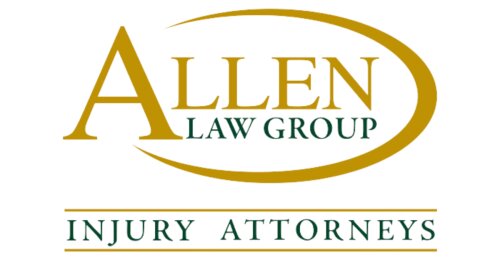Best Medical Malpractice Lawyers in Chicago
Share your needs with us, get contacted by law firms.
Free. Takes 2 min.
List of the best lawyers in Chicago, United States
About Medical Malpractice Law in Chicago, United States:
Medical malpractice law in Chicago seeks to provide a legal solution for patients who suffer injuries due to negligent actions by doctors or other healthcare providers. This branch of law is based on negligence principles and can involve cases such as misdiagnosis, surgical or medication errors, failure to provide adequate care, or violation of informed consent.
Why You May Need a Lawyer:
Given the complexity of medical malpractice cases and the challenges in proving negligence, having a skilled lawyer is often necessary. You might need a lawyer if you or a loved one suffered harm due to a healthcare provider's misconduct, inadequate treatment, or if there are issues concerning the standard of care provided. Lawyers can assist in gathering evidence, negotiating with insurance companies, interpreting medical and legal jargon, and taking the case to trial if necessary.
Local Laws Overview:
Illinois law requires plaintiffs to file their medical malpractice claim within two years of when they knew, or should have known, about the injury, but never more than four years after the date of the actual malpractice. Another key factor is the Illinois Medical Malpractice Act. This law stipulates that judgments in favor of the plaintiff should cover actual economic damages (like medical bills and loss of earnings) and non-economic damages such as pain and suffering. As of 2021, the Illinois Supreme Court has ruled that there are no caps on non-economic damages.
Frequently Asked Questions:
1. What constitutes medical malpractice in Chicago?
Medical malpractice occurs when a healthcare provider fails to adhere to the accepted standard of care in treating a patient, and that negligence results in injury or harm to the patient.
2. What is the statute of limitations for medical malpractice in Chicago?
The statute of limitations in Chicago is two years from the time the patient knew, or should have known, about the injury, and no more than four years after the date of the actual malpractice.
3. Can I sue a hospital for medical malpractice?
Hospitals can be sued for medical malpractice if the negligence took place in their facility and the hospital staff were directly involved in the injury. If the malpractice act involves a contractor or non-employee, a separate action may be necessary.
4. How difficult is it to win a medical malpractice lawsuit?
The complexity of medical malpractice cases can make them particularly difficult to win. It requires convincing evidence that the healthcare provider's negligence directly resulted in harm. Therefore, proper legal counsel is crucial.
5. Are there caps on medical malpractice damages in Chicago?
As of 2021, the Illinois Supreme Court has ruled that there are no caps, or limits, on non-economic damages in medical malpractice cases.
Additional Resources:
For additional help and information, consider turning to bodies like the Illinois Department of Public Health and the American Medical Association. They offer comprehensive resources on patient rights and standards for medical care.
Next Steps:
If you believe you have a medical malpractice claim, it's crucial to connect with a knowledgeable attorney as soon as possible. They can help you understand your rights, evaluate the merit of your claim, and guide you through each stage of the legal process. In addition, it is important to keep all medical records and document your experiences, as this evidence can bolster your case.
Lawzana helps you find the best lawyers and law firms in Chicago through a curated and pre-screened list of qualified legal professionals. Our platform offers rankings and detailed profiles of attorneys and law firms, allowing you to compare based on practice areas, including Medical Malpractice, experience, and client feedback.
Each profile includes a description of the firm's areas of practice, client reviews, team members and partners, year of establishment, spoken languages, office locations, contact information, social media presence, and any published articles or resources. Most firms on our platform speak English and are experienced in both local and international legal matters.
Get a quote from top-rated law firms in Chicago, United States — quickly, securely, and without unnecessary hassle.
Disclaimer:
The information provided on this page is for general informational purposes only and does not constitute legal advice. While we strive to ensure the accuracy and relevance of the content, legal information may change over time, and interpretations of the law can vary. You should always consult with a qualified legal professional for advice specific to your situation.
We disclaim all liability for actions taken or not taken based on the content of this page. If you believe any information is incorrect or outdated, please contact us, and we will review and update it where appropriate.












